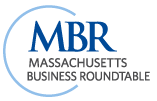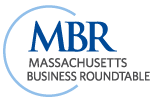Open Forum Roundup: Evolving Worker Preferences for the Office; New Framework to Meet Changing Needs of Employees
Throughout the pandemic, the Roundtable’s Open Forums have provided a space for members to discuss best practices, trends, and new norms around the changing work environment. On July 27, Roundtable member JLL presented the findings of a global study to understand worker preferences. The discussion featured Roundtable Executive Committee member Jim Tierney, Market Director, New England and Julia Georgules, Senior Director, Research & Strategy, who shared the results of the Workforce Preferences Barometer, a survey of over 3,000 participating employees from 10 companies that underscored new expectations for the office.
The survey results underscored the expectation that offices need to be high quality and human-first, which reflects the shift both in employee attitudes as well as the adoption of new work arrangements and changing conditions over the course of the pandemic. The survey highlighted several major insights including the rising importance of work-life balance ahead of salary, how place can impact quality of life and increasing fatigue with working from home, and renewed expectations for flexibility and days in the office. Additionally, the survey reflected the challenges and needs of employees, driven by sociodemographic profiles, with 58% of employees reporting that health and well-being programs as the key element that will make their employer unique in the long run, and a higher number of employees serving as caregivers who reported feeling overwhelmed
With Roundtable members reporting a dramatic increase in the adoption of hybrid work arrangements, the insights offer a framework for how employers can create an office environment that meets the various needs of workers, with the research outlining four personas of workers and their office preferences. Overall, the survey found that having an outstanding office is the best way to encourage workers back – 69% of people who were highly satisfied with their former office environment strongly miss their office. With the Delta variant on the rise, the forum also led to open discussion amongst members sharing reaction to the variant and potential implications for what this may be for return-to-office plans.
The findings from the survey and forum discussion were consistent with feedback from Roundtable members who are increasing flexible work arrangements, expanding well-being programs, and fielding requests and expectations from potential hires around the office environment.
RECENT POSTS
- Quarterly Policy Roundup: Q1 2024
- Black History Month: Reflections from Roundtable Staff
- Roundtable Members Discuss Impact of Business on Society
- Quarterly Policy Roundup: Q3 2023
- What We Heard This Summer in Our Roundtable Member Meetings
- Health Equity in Massachusetts and Why it Matters
- Growing MA’s Labor Market: Why Immigrants Should be Part of the Solution
- Massachusetts’ Future of Energy
- Roundtable Members Share Reflections on Workforce Dynamics
- Quarterly Policy Roundup: Q1 2023

